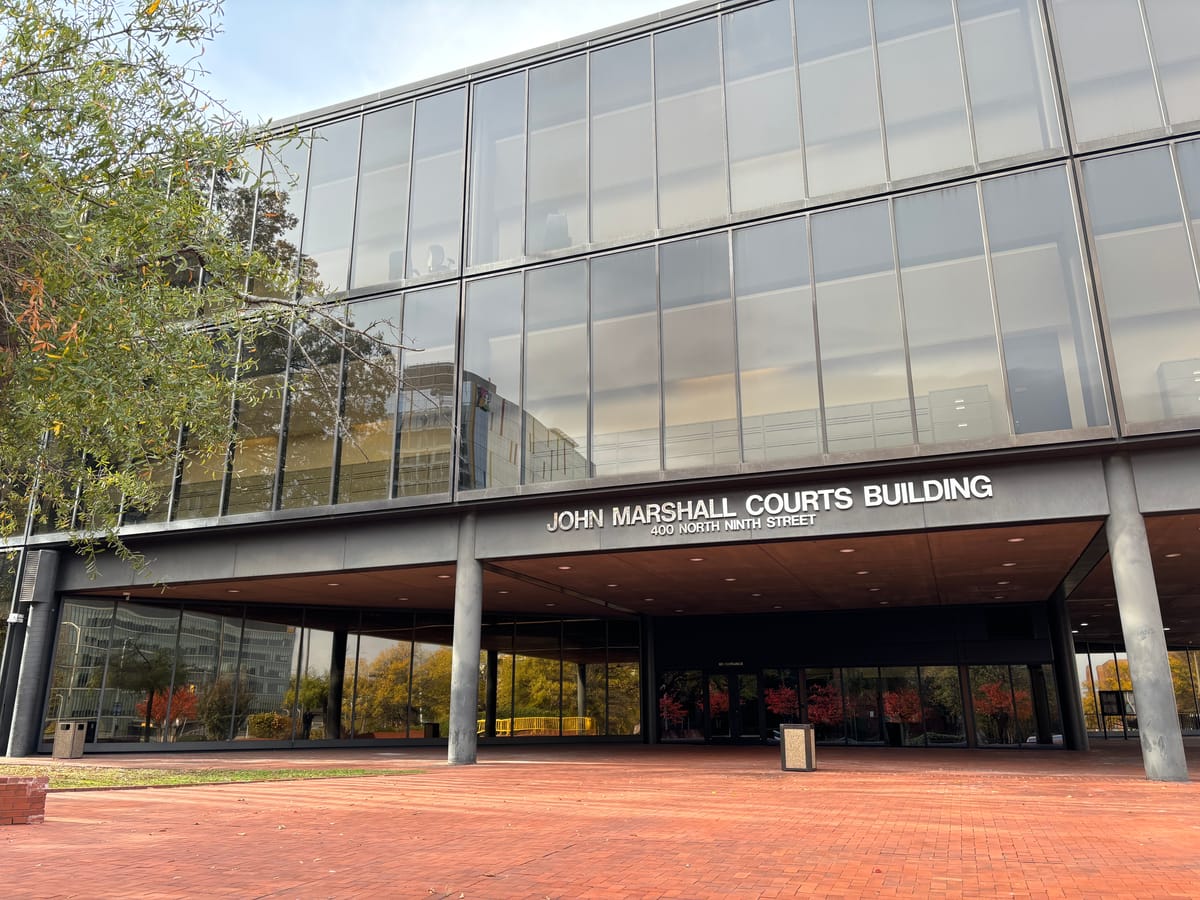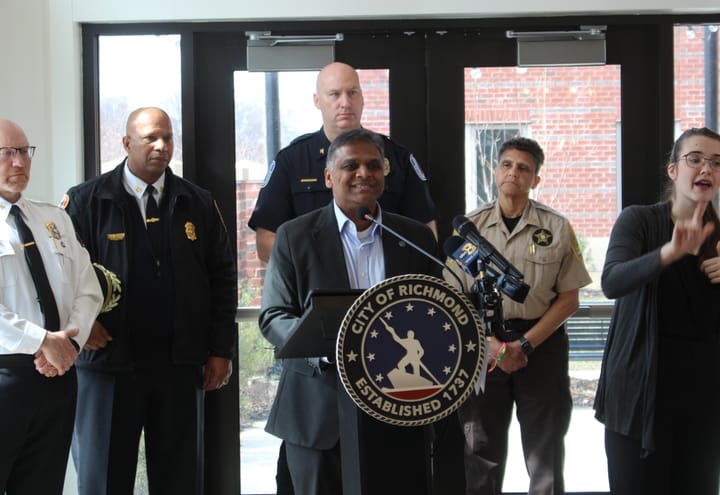
Trial in ex-FOIA officer’s case set for next September after unusually hostile scheduling process
The lawsuit by former city of Richmond public records official Connie Clay is set for a three-day trial next September after her lawyer and attorneys for the city worked through an unusually hostile process to agree on a date.
Clay, the city’s former Freedom of Information Act officer, sued the city in March, claiming she was wrongfully fired after she raised concerns the city was repeatedly failing to comply with Virginia’s transparency laws. Clay claims she should have been protected from retaliation as a whistleblower reporting wrongdoing. The city argues she was let go for other reasons and wasn’t punished for speaking up about FOIA violations.
The two sides appeared before a local judge Friday to resolve early procedural hurdles in the case, one of which has been the inability to agree on a schedule for how the case should move forward.
Figuring out court dates that work for everyone is typically something lawyers handle on their own. However, Clay’s attorney, Sarah Robb, took the unusual step of filing a motion asking the court to intervene in the scheduling problems, alleging the city’s hired attorneys “continue to refuse to set this case for trial.”
In a recent court filing, Robb said she believed there was an initial agreement to hold the trial next May and the city’s attorneys from the Ogletree Deakins law firm had indicated to her they only needed to confirm that their witnesses would be available from May 19-21. Two weeks later, Robb alleged, the city’s attorneys “raised for the first time that they themselves were not available” on those days.
“Clay’s counsel has yet to receive potential trial dates from the city’s attorneys,” Robb wrote. “Their refusal persists and, apparently, they must be ordered to trial.”
The Ogletree Deakins attorneys — Jimmy F. Robinson Jr. and Alicia R. Johnson — filed their own version of events with the court that said they never agreed to the May dates and contended it was Robb who was being unreasonably difficult. Any suggestion that the city’s legal team was deliberately trying to stall the case or “engaging in gamesmanship” by refusing to provide dates, they wrote, was “highly offensive and blatantly false.”
The tensions were less overt when the two sides met in the courtroom Friday, but Robb made it clear she preferred an earlier trial date and disputed claims from the city’s lawyers that she had said she couldn’t do a trial at all during the summer months. She said she had only pointed out that summer vacations would make a summer trial more difficult as she pushed for an agreement to go to trial before summer.
Richmond Circuit Court Judge Claire Cardwell got both sides to agree to a trial on Sept. 23-25. But she indicated she felt the court shouldn’t have to be involved in helping the two legal teams sort out basic logistics.
“We’re all grown-ups here,” the judge said at one point.
The city’s attorneys had also filed a motion asking the judge to require Clay’s lawyer to produce more documents to support her claims she was retaliated against.
A dispute over documents
The city argued the documents were critical to the case and would help the judge weigh the basic accuracy or inaccuracy of Clay’s allegations, because Clay’s lawsuit characterized the communications she had with other city officials without offering proof by attaching all the documents to the lawsuit.
Clay’s attorney said the city already had access to all the documents it was insisting on getting, including text messages that were on a city-issued phone Clay no longer has access to.
Cardwell denied the city’s motion, saying its legal team had failed to make a case that the documents in question were essential to the case. The judge also said Clay’s accusations were specific enough that she didn’t need to file supporting documents for every claim in the early stages of the case as opposed to letting those documents emerge later.
"This is one of the more detailed complaints I’ve seen," Caldwell said.
Clay’s attorney agreed to introduce one key document into the record voluntarily in an effort to “streamline the issues and help advance this case toward trial.”
In a filing last week, Clay’s team attached a copy of a Jan. 19 memo Clay sent to former city spokeswoman Petula Burks, her former supervisor, outlining 11 concerns she had with the city’s handling of FOIA and her strained work relationship with Burks.
That memo listed several challenges the city had to work through, including city employees being “obviously untrained” on FOIA, “inconsistent handling of FOIA requests,” and “needless lawsuits caused by the ignorance, arrogance and pride of internal stakeholders.”
Clay also listed several recommendations for how the FOIA officer role could be improved, such as having a better website, having the FOIA officer report directly to the chief administrative officer and giving the FOIA officer the “final” say on FOIA issues.
After Friday’s hearing, Robinson, one of the city’s attorneys, said his team got what it wanted, an apparent reference to the production of the memo and the September trial date.
Robb said she was simply trying to ensure Clay gets her day in court.
“My client would like to be heard,” she said.






